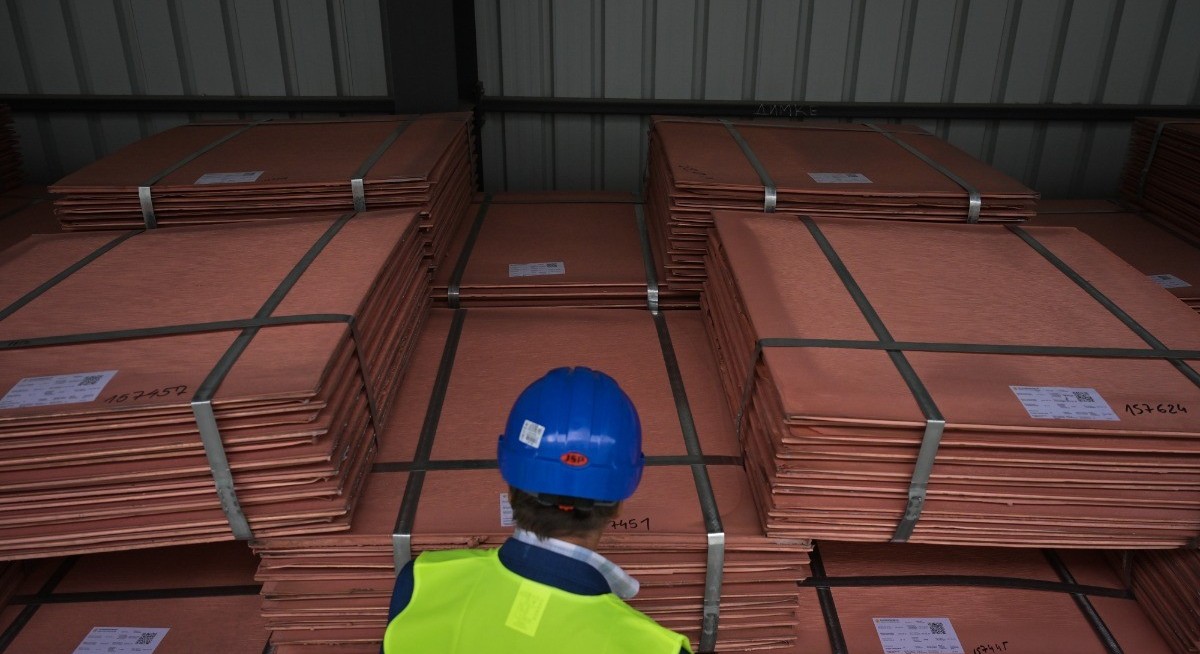“This is a historic point of tightness” for the copper supply chain, Nicholas Snowdon, head of metals research at Mercuria Energy Group, said during a conference.
Here are three major themes from Asia Copper Week in Shanghai:
Smelters versus miners
An executive from German copper smelter Aurubis AG said he was prepared to reject any excessively low annual benchmark for processing fees. He was also less than complimentary about the notion of negative fees — an unusual scenario whereby smelters effectively pay miners to treat raw material, rather than the other way around. China’s main metals industry association also railed against “unsustainable” sub-zero fees as the two sides began annual contract talks.
See also: Saudi Arabia explores giant jet purchase from Airbus, Boeing — Bloomberg
Miners have the whip hand after years of unchecked smelting expansion, exacerbated this year by a series of unexpected supply outages. Spot charges — often a guide to the direction of annual contracts — have been negative for much of this year.
The result has been a difficult series of negotiations, with the possibility that some parties could walk away from the system under which global smelters coalesce around an initial benchmark agreed between a major miner and processors in China. This would make it harder both parties to plan supply throughout the year.
See also: Boeing to cut around 300 defence supply chain jobs — Bloomberg
Tim Kurth, chief operating officer for custom smelting at Aurubis, urged miners to think of the longer term and avoid “a kind of war”. If this conflict can be sidestepped, the benchmark can be preserved – particularly as smelters begin to rein in excess capacity growth and more mine supply emerges, he said.
The American premium
Traders and producers are once more expecting substantial flows of refined metal to the US, where prices are higher because of lingering expectations for import tariffs. Mercuria’s Snowdon said the US is likely to hold 90% of global copper inventories by the first quarter of 2026.
This will have knock-on consequences elsewhere. The more copper cathode that America sucks up, the greater the shortage in other markets — meaning suppliers such as Chile’s Codelco, for example, have not been shy in offering some customers in China a record-high premium of US$350 a tonne.
Snowdon calls it “extreme dislocation” and said “there should be no underestimation of the strength of this pull and the scarcity risk” that is set to afflict the copper market outside the US over the next three to six months.
China slowdown
To stay ahead of Singapore and the region’s corporate and economic trends, click here for Latest Section
For all the talk about supply stress and future demand growth, China’s appetite for copper is experiencing a lull. This has been especially true since prices on the London Metal Exchange surged to a record US$11,200 a tonne in late October. The world’s second-biggest economy is having a shaky period: While sectors like renewables remain strong, others like consumer goods and construction are suffering.
“The risk to China demand next year or in the medium term is that the downturn in the property sector is irreversible,” Tianyu He, senior analyst at CRU Group, told the conference.
Helen Amos, managing director for commodities research at BMO Capital Markets, also said that a looming acceleration in supply — including the potential for fast-tracking mine projects in the US, Canada and Chile — should ease pressures. There’s also more potential for copper substitution, she said.
“We’re successful in taking copper out of applications and also we’re seeing quite decent investment in the supply side,” Amos said. After noting that prices on an inflation-adjusted basis were well within their historic range, she added: “If we were really experiencing supply constraints today, the price would already be telling us this.”
Uploaded by Felyx Teoh







